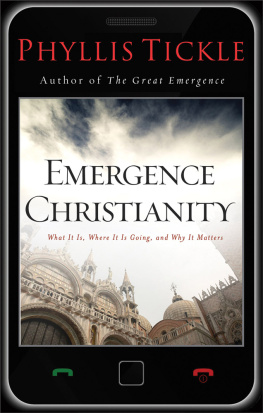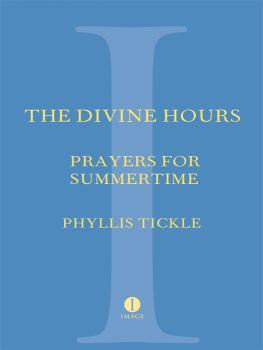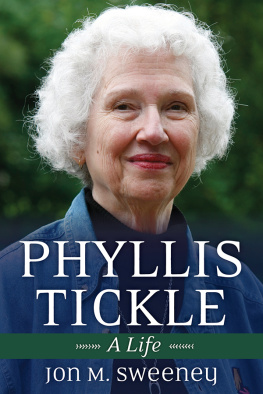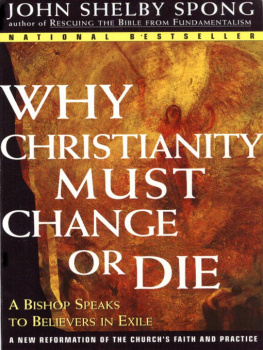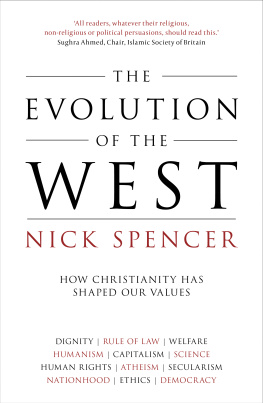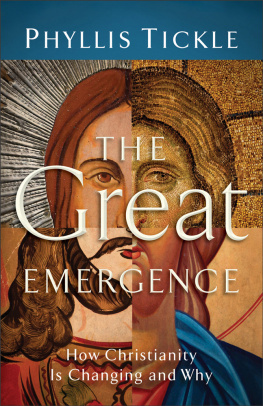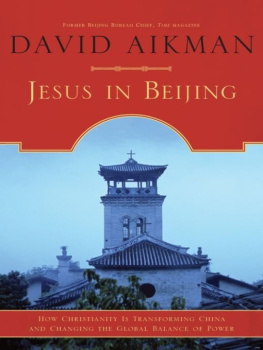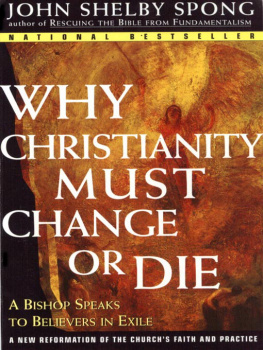Phyllis Tickle - Emergence Christianity: What It Is, Where It Is Going, and Why It Matters
Here you can read online Phyllis Tickle - Emergence Christianity: What It Is, Where It Is Going, and Why It Matters full text of the book (entire story) in english for free. Download pdf and epub, get meaning, cover and reviews about this ebook. year: 2012, publisher: Baker Publishing Group, genre: Religion. Description of the work, (preface) as well as reviews are available. Best literature library LitArk.com created for fans of good reading and offers a wide selection of genres:
Romance novel
Science fiction
Adventure
Detective
Science
History
Home and family
Prose
Art
Politics
Computer
Non-fiction
Religion
Business
Children
Humor
Choose a favorite category and find really read worthwhile books. Enjoy immersion in the world of imagination, feel the emotions of the characters or learn something new for yourself, make an fascinating discovery.
- Book:Emergence Christianity: What It Is, Where It Is Going, and Why It Matters
- Author:
- Publisher:Baker Publishing Group
- Genre:
- Year:2012
- Rating:3 / 5
- Favourites:Add to favourites
- Your mark:
- 60
- 1
- 2
- 3
- 4
- 5
Emergence Christianity: What It Is, Where It Is Going, and Why It Matters: summary, description and annotation
We offer to read an annotation, description, summary or preface (depends on what the author of the book "Emergence Christianity: What It Is, Where It Is Going, and Why It Matters" wrote himself). If you haven't found the necessary information about the book — write in the comments, we will try to find it.
Emergence Christianity: What It Is, Where It Is Going, and Why It Matters — read online for free the complete book (whole text) full work
Below is the text of the book, divided by pages. System saving the place of the last page read, allows you to conveniently read the book "Emergence Christianity: What It Is, Where It Is Going, and Why It Matters" online for free, without having to search again every time where you left off. Put a bookmark, and you can go to the page where you finished reading at any time.
Font size:
Interval:
Bookmark:

2012 by Tickle, Inc.
Published by Baker Books
a division of Baker Publishing Group
P.O. Box 6287, Grand Rapids, MI 49516-6287
www.bakerbooks.com
Ebook edition created 2012
All rights reserved. No part of this publication may be reproduced, stored in a retrieval system, or transmitted in any form or by any meansfor example, electronic, photocopy, recordingwithout the prior written permission of the publisher. The only exception is brief quotations in printed reviews.
ISBN 978-1-4412-3965-5
Library of Congress Cataloging-in-Publication Data is on file at the Library of Congress, Washington, DC.
Scripture quotations labeled KJV are from the King James Version of the Bible.
Scripture quotations labeled NKJV are from the New King James Version. Copyright 1982 by Thomas Nelson, Inc. Used by permission. All rights reserved.
Scripture quotations labeled NIV are from the Holy Bible, New International Version. NIV. Copyright 1973, 1978, 1984 by Biblica, Inc. Used by permission of Zondervan. All rights reserved worldwide. www.zondervan.com
The internet addresses, email addresses, and phone numbers in this book are accurate at the time of publication. They are provided as a resource. Baker Publishing Group does not endorse them or vouch for their content or permanence.
You will find many wonderful things between the covers of this book: provocative questions and astute observations about sacred space, hierarchy, authority. Scattered throughout are fascinating history lessonswho knew that a musical decision made in a Seattle church in 1956 is still reverberating in early-twenty-first-century house churches? Finally, Tickles insights will help the church reflect on a larger question: How can we best serve the kingdom of God right now?
Lauren F. Winner , author of Mudhouse Sabbath and Still: Notes on a Mid-Faith Crisis
Phyllis Tickle is in a unique position by reason of experience, education, and personal courage to say things that many cannot sayor cannot see. Here she does it very wellonce again. Christianity is emerging with or without Phyllis Tickle, but she is sure helping the rest of us to emerge along with it!
Fr. Richard Rohr , OFM, Center for Action and Contemplation, Albuquerque, New Mexico
Finally someone has put the emergence conversation in the wider historical context it deservesshowing how what is now emerging owes so much to contributors over the last century, from Walter Raushenbusch to Johann Baptist Metz, from Dorothy Day to Mary and Gordon Cosby, from Azusa Street to Taiz and Iona to Buenos Aires. Phyllis Tickle gets it right and conveys it beautifully, so more and more readers can be a part of it... with a clearer understanding of what it is!
Brian D. McLaren , author/speaker/networker
What a fascinating read! Phyllis Tickle tackles Emergence Christianity once again. In this volume, she takes the conversation further, filling in all the details and answering the who, what, where, why, and how of the movement. A page turner, I read through each story with anticipation as I eagerly awaited the next set of connections Phyllis Tickle would make between seemingly unrelated people, movements, faith, and culture. Never in one volume have I seen such a diverse set of Christian movements not only listed but analyzed for their meaning as it related to the bigger picture. Decade by decade, she walks us through the twentieth century, tracing the roots of Emergence Christianity. No one gets left behind here: we read about Pentecostalism, house churches, Taiz, Vatican II, liberation theology, Orthodox spirituality, the Vineyard, to name a few. She brings her analysis all the way up to the present day, describing the current movements of Emergence, such as Emergent Village, Neo-monasticism, New Calvinism, and others. Throughout her work, Tickle helps make a vast amount of stories intelligible, and she seems to do it effortlessly. As we have come to expect, Tickle has done her homework, and the result is a unique contribution to the conversation about what Christianity has and will become in the twenty-first century.
Dr. Ryan Bolger , PhD, associate professor, Church in Contemporary Culture, Fuller Theological Seminary
Take a heart practiced in faith and trust in God. Add the mind of a finely trained historian and the eye of a keen observer of religion. Add gifted writing, unfailing bluntness, and deep wisdom, and you get Phyllis Tickle. These pages offer you nothing less than the future of the church, chronicled by an author who welcomes this great emergence without an ounce of fear. Its a story you cant afford to miss.
Philip Clayton , dean, Claremont School of Theology
The communities of Emergence Christianity form an often confusing and tangled mess of theology, culture, and technology. Phyllis steps into all of this with a keen and discerning eye that is part art critic, part historian, and part local bartender. In her latest book she lifts up the beautiful and the hopeful. She teaches with expert authority and a clear, simple style, all while serving up an eclectic mix of the most fascinating people, communities, and practices of twenty-first-century Christianity.
Neal Locke , 1st Presbyterian Church of Second Life
The elegance of Phyllis Tickles writing provides beautiful context for the comprehensiveness of her analysis: she has a birds-eye view of whats happening to, in, and through a new kind of Christianity.... Emergence Christianity lets us into a secret that could do with being shouted from rooftops: we are all one, we need each other, and no matter the stream of Christianity you happen to feel most distance from, theres a gift waiting to be revealed when human beings open themselves to change. If you want to know how the old and the new fit together, look no further.
Gareth Higgins , executive director, Wild Goose Festival
Are you experiencing church-death anxiety? Do you have shortness of breath when thinking about the decline of Christianity in America? Phyllis is your healer. Sit. Take a deep breath. And read.
Rev. Nadia Bolz-Weber , founding pastor, House for All Sinners and Saints, Denver, Colorado
Preface
Part 1 An Interim Report: Telling the Story So Far
1. Back to Now: How SemiMillennial Tsunamis of Change Shape Religion and Culture
2. Calling It What It Is: The Difficulty of Naming
3. Defining Emergence: Simplifying the Complexity
4. Turns of the Century: What Formed the Great Emergence?
Part 2 A Long Time Coming: How Did We Get Here?
5. House Churches: Communities of Change
6. Scattered Communities: Spreading the Word by Spreading Out
7. Taking the Church Out of the Church: Rethinking Sacred Space
8. Pentecostal Power: The Holy Spirit in a Dangerous Decade
9. Spiritual but Not Religious: Belonging, Behaving, and Believing in a New Kind of Community
10. What the Hyphen Means: Claiming the New While Honoring the Old
11. Innocence Lost: A Movement Untethered
12. Religion Rebounds: Gathering Steam and Getting a Name
Part 3 Pulling Together: Defining What It Is and What It Is Not
13. Reporting on the Action: Documenting the Changes as They Happened
14. It Takes a Village...
15. Distinguishing This from That: What Organizational Patterns Can Tell Us
16. Post, Quasi, Whatever: Getting beyond the Vague
17. The Whole and Its Parts: Bringing It All Together
18. Finding the Big Story: The Role of Philosophy and MetaNarrative
19. The Head and the Heart: Worshiping with Heart, Mind, Soul, and Strength
Part 4 And Now What? Thoughts on the Decisions and Dilemmas to Come
Font size:
Interval:
Bookmark:
Similar books «Emergence Christianity: What It Is, Where It Is Going, and Why It Matters»
Look at similar books to Emergence Christianity: What It Is, Where It Is Going, and Why It Matters. We have selected literature similar in name and meaning in the hope of providing readers with more options to find new, interesting, not yet read works.
Discussion, reviews of the book Emergence Christianity: What It Is, Where It Is Going, and Why It Matters and just readers' own opinions. Leave your comments, write what you think about the work, its meaning or the main characters. Specify what exactly you liked and what you didn't like, and why you think so.

